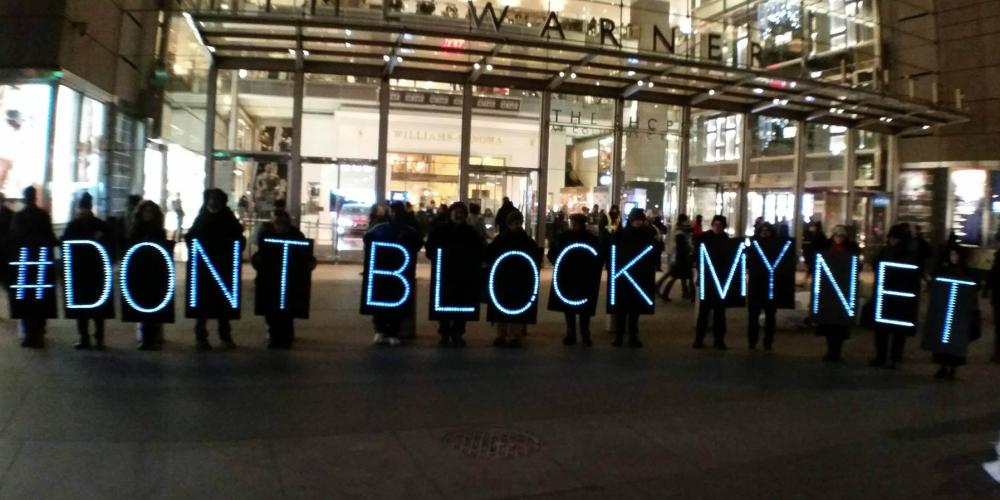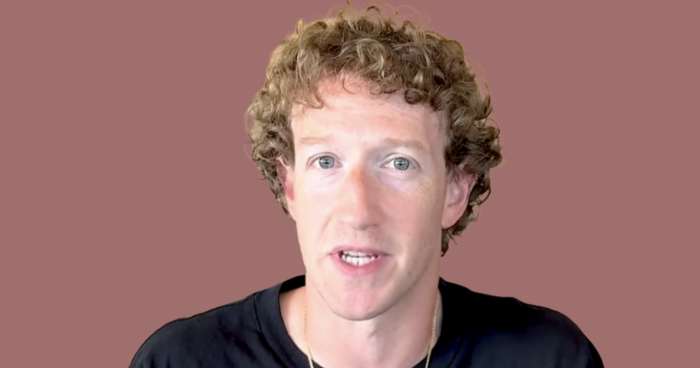Reclassification Is Not a Dirty Word

To save Net Neutrality, we need to correct the FCC's mistakes once and for all.
In the wake of Tuesday’s big Net Neutrality announcement, it's time we got serious about the “R” word. And no, we're not talking about “regulation.”
The future of the internet as we know it today is all about “reclassification.”
Reclassification isn't just going to undo the mess caused by the Verizon v. FCC court case. It will also resolve years of bad policy decisions that have threatened the underlying architecture of the internet.
Reclassification offers us a path towards increased competition, free speech and all the free-market benefits a venture capitalist could dream of.
Reclassification isn't a new concept. It isn't a bad thing. And it’s our best chance at saving everything we love about the internet.
Put another way: Reclassification will reinstate the legal framework that the internet was built on. Reclassification will return the internet to its roots.
So what the heck is “reclassification”?
Back to basics
The recent legal history of our modern communications system is a sordid thing, thanks to a decade and a half of bad policy moves.
But it wasn’t always this way. The law and FCC policy have historically recognized a distinction between communications networks and the messages and data that run across them.
Let’s take a step back for a moment.
Since its earliest days, our nation’s communications network has always been treated under the law as a “common carriage” network.
This means that it was open to all, and the network owner had to serve all customers without discrimination. Government’s role in all this was to make sure that these networks were accessible to anyone who wanted to use them, for whatever purpose.
Because the phone company couldn't interfere with the content flowing over the network, some really smart people in the 1960s and early 1970s were able to use it to connect computers together, giving rise to the internet.
Other smart people then came along and used the open network to launch innovations like the World Wide Web, browsers, Instant Messaging, RSS and the almost limitless other things we all use the internet for every day.
Thanks to common carriage, these innovators were able to use the network to launch amazing innovations without first asking the phone company for permission.
And it's important to note that common carriage has nothing to do with whether or not the network owner is a monopolist. Hotels, shippers, airlines, long-distance phone companies, cellphone companies and many others operating in non-monopoly markets have all historically been treated as common carriers.
With a series of decisions made from the late 1960s through the early 1980s, the FCC clarified and codified rules for the computer-driven telecom era, building in a clear separation between the access network, and all the services and functions that use the network. This separation kept the underlying physical network open to all, all the while ensuring that the services using the network could develop in an unregulated environment.
When Congress wrote the 1996 Telecommunication Act, it essentially codified this distinction between “content” and “carriage.”
Communications networks that offered two-way connectivity to the general public — be they the traditional wired phone network or the newer wireless and cable systems — were all deemed “telecommunications services,” and the content and applications that rode over these IP-based networks were called “information services.”
Telecommunications services were subject to the basic common-carrier provisions of Title II of the Communications Act, while information services were left unregulated.
When it came to the open internet, so far so good.
How did we get here?
In 2002, the FCC made a big misstep.
Caving to pressure from the cable industry, the FCC (chaired by current head cable-industry lobbyist Michael Powell) decided that if you were getting broadband from a cable modem, it should not be treated with the same common-carriage protections.
The Powell FCC declared that cable broadband was an “information service” — which meant that these ISPs could block and slow down websites and applications.
This sparked a lengthy legal case, where the FCC’s decision was first overturned by an appeals court, then upheld by the Supreme Court in a split decision.
But the court didn't state whether the FCC’s move to classify broadband as an “information service” was right or wrong, only that it had a right to reclassify (a right which it retains to this day should it decide to act on this week’s court decision).
In 2005, following the Supreme Court’s decision in the cable-modem case, the FCC applied the “information services” classification to broadband offered over all other platforms (including DSL and other phone company broadband technologies, that at the time were treated as common-carrier services).
This FCC reclassification of broadband from a telecom to an information service removed the common-carrier protections that were key to the initial development and rapid growth of the internet.
People and businesses that relied on these protections (everyone except the cable and phone companies) rightly freaked out at the total loss of nondiscrimination protections in our most important communications. To assuage these concerns, in 2005 the FCC adopted a set of openness principles that it promised to uphold.
And in 2010, the FCC attempted to codify these openness principles into actual enforceable rules — but it chose to do so without reclassifying broadband as a “telecommunications service.”
Verizon quickly sued, and as everyone expected, the court told the FCC it can’t have it both ways: Either broadband is a common-carrier network and thus subject to nondiscrimination obligations, or it's an information service that can discriminate.
So now internet users have zero protections.
A broadband provider can block any website or application it wants; it can implement pay-for-priority schemes where everyone’s traffic is slowed down to make way for the content from the deep-pocketed online giants who are willing to pay the ISPs for preferential treatment.
And the fallout from this week’s court decision goes well beyond Net Neutrality.
The decision threatens the FCC’s ability to bring broadband to rural and low-income people, provide consumers with basic privacy protections, help Americans with disabilities get online in greater numbers, promote competition among network operators, and eliminate requirements for broadband service providers to advertise and bill accurately for their services.
What reclassification really means
Yes, this is all madness. No one else in the industrialized world operates like this.
But the FCC can mend this self-inflicted wound by simply reversing the decisions to not treat broadband carriers as the common carriers that they clearly are.
The FCC has the court-sanctioned authority to act immediately to reclassify broadband and return some sanity to our communications policymaking.
Reclassification doesn't need to go hand-in-hand with monopoly-style regulation.
The Commission can regulate network operators with a light touch under the Communications Act, deciding that some or even a majority of common-carrier provisions in Title II of the Communications Act should not apply to broadband networks.
Indeed, reclassifying wouldn’t change the status quo on day one; it would just mean the FCC would have the undisputed authority to act to keep the internet open.
Finally, nothing about reclassifying broadband transmission as a common-carrier service would lead to “regulation of the internet.” This is about the internet-access network, not the internet or the apps and services that use it.
The access networks serve as the on-ramps to the internet, but they are not the internet itself. There is substantial, widespread agreement that the internet should remain free from FCC regulation.
So let’s close with this: Reclassification is not a dirty word. And if anyone tells you it is, check to see whose payroll they’re on before you retweet them.





